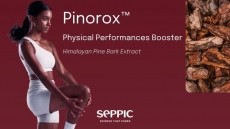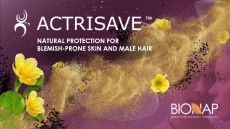Accreditation board aims to enhance scientific credibility of supplements

The US-based global board aims to encourage reproducible research into end products in order to create a market of effective products, with accreditation involving the assessment of clinical trials and effectiveness of products.
Presenting at the event in Geneva last week, Dr. Evelyn Wolfram, strategic advisor for EBE, voiced the opinion that the current environment surrounding natural health products is plagued by an "anti-evidence" sentiment.
She explained that while research itself is not lacking, the focus must shift toward ensuring reproducible science with reports providing the exact ingredients studied, to ensure products provide effective doses of active ingredients and real-world health outcomes are delivered.
She said the responsibility falls upon the natural health industry to support companies committed to rigorous research on their finished products.
Recognising the complexity and variability of these products, EBE was established in 2014 to address this issue and promote better standards in the industry.
Wolfram implored that building evidence for the reproducibility of products is the first step in fostering innovation and credibility in the sector but noted that in the ever-expanding market of natural health products, ensuring reliability and consistency has been a long-standing challenge.
“A race to the bottom”
Wolfram explained that consumers are driven by price incentives, particularly now during the cost-of-living crisis.
She argued that this can encourage competing companies to make use of the same previously conducted clinical studies which apply only to active ingredients, and not to their finished products.
Referring to it as “a race to the bottom”, Wolfram explained that to become the most financially accessible product on the shelf, some companies cut corners in efficacy testing.
She explained that this is detrimental to the companies shouldering the financial burden of clinical testing, while other companies focus on marketing strategies to facilitate consumer preference.
Wolfram also considered this to be a danger to the industry as a whole, as without thorough testing, exaggerated claims made by untested finished products are the ones that get noticed by the media.
She said this, in turn, calls into question the reputation of all claims made by natural health products, with public attitude likely to focus on the threat from misleading communication.
Wolfram gave the example of the work conducted by Professor Monique Simmonds, OBE, with Kew Gardens, UK, recounting that in an assessment of 50 ‘sandalwood containing’ commercial products concluded only one product contained the sandalwood reported.
Empowered by Evidence
Wolfram stated that scientific research on natural health products is of paramount importance due to the millions of people who rely on them for their wellbeing.
Currently, for a consumer to get details of the specific product used they might need to pay for the article and even then, the exact product used may not be described. And even if it does, it is not possible to be certain that the product on the shelf today has the same ingredients as the product that was used in the clinical trials.
As such, EBE has developed a robust and transparent process to link products on the shelf in over 30 countries, with clinical evidence of their effectiveness, to empower consumers and health care professionals, as well as a database of EBE-accredited science backed products.
One misconception that EBE is looking to address is that if a substance is scientifically proven, then supplementing said substance in a healthy diet is universally beneficial, and that more of a substance equates to better outcomes.
Wolfram explained that this is a waste of potential in the industry and that with 33,443 plants with documented medicinal actions, many remain unexplored.












